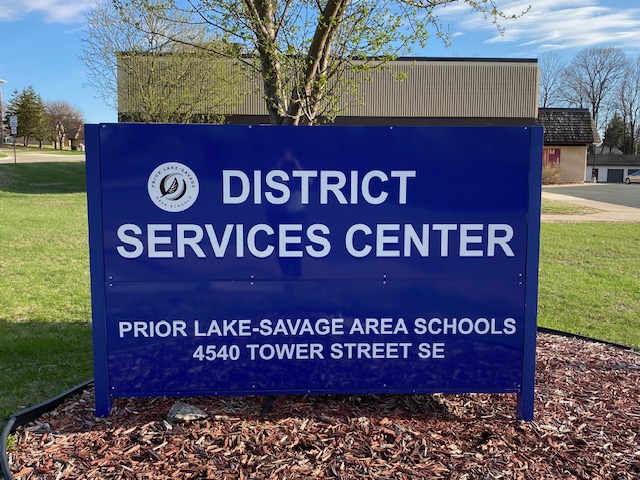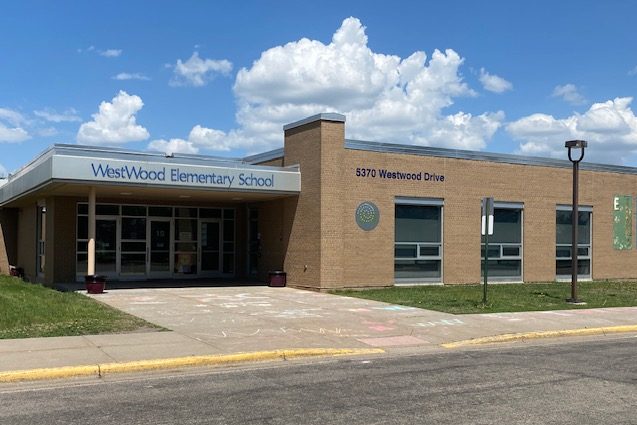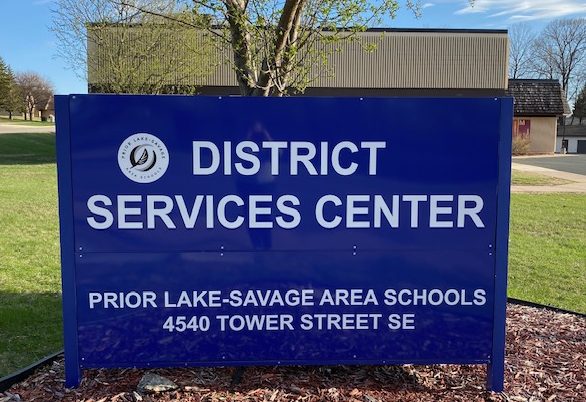Several decisions made at the July 14 meeting by members of the Prior Lake-Savage Area School Board will impact the district in the coming year, with major changes approved for the 2026-27 school year.
After discussing budget-cutting options for more than six months, the board approved the restructuring plan that would include closing WestWood Elementary as a neighborhood school and move the La ola del lago Spanish immersion program from Grainwood to that building. The District Services Center located on Tower Street will close and be sold, and all operations will be moved to Grainwood. Changes will not impact the coming school year, but will be implemented for 2026-27.
Several board members requested that the plan be split into separate pieces, given the scope of the proposal, uncertainty regarding future student enrollment and the possibility of the district putting forth another levy referendum request. Others disagreed, including Board Chair Dan White, who noted a decision on the project was already delayed five weeks, and didn’t believe the circumstances would change if a decision was postponed again.
Superintendent Michael Thomas pointed out the co-dependency of the plan’s many parts and the need for a comprehensive approach. He agreed that the plan was complex, “but it is a package that we felt gave us the ability to face the budget challenges that we have right now.”
The plan will move forward following a 4-3 vote. Board members Amy Bullyan, Mary Frantz and Jessica Olstad joined White in voting to approve the change in building uses, along with the sale of the District Services Center. Board members Lisa Atkinson, Charles Johnson and Jessica Mason voted no.
Following Monday’s board meeting, the district sent notification of the final decision to staff members and district families that included information that can be viewed here.
Public forum
Several topics on the board’s agenda resulted in strong opinions being expressed during the open forum scheduled at the start every board meeting and allows up to five people to address the board. Those speaking at the July 14 meeting included Katy Gabrio, Ryan Parr, Kelly Maupin, Emily Gillespie and Richard Wolf.
Gabrio, a mother of two students in the district, spoke about her disappointment in the board’s decision to sunset the Equity and Inclusion resolution. She said LGBTQ+ students are at a higher risk of self-harm and suicide than their peers because of how they are mistreated and stigmatized in society. She also expressed concerns about a board member’s unwillingness to support the district’s membership in Minnesota State High School League due to the organization’s inclusion of transgender athletes. She pointed out that participation and eligibility of transgender athletes in high school sports is determined by the Minnesota Human Rights Act and the Minnesota constitution.
Ryan Parr, a district parent, shared her displeasure in a number of social media comments previously posted by a school board member. Parr said she was told that the school board is a self-governing board. She expressed hope that the board would do so with empathy and seriousness. She also stated concerns about the board’s revisions to its code of ethics policy and the sunsetting of its member violation policy.
“The changes to the ethics guidelines do not increase transparency. They shield members from taking accountability for their words and actions,” Parr said.
Katie Maupin and Emily Gillespie, both district parents and members of the district’s Policy Advisory Committee, each spoke about issues with the revisions proposed for Policy 904 that addressed distribution of materials on school property by non-employees. The policy was discussed during the board’s June 16 study session. Both expressed their surprise and disappointment in the changes that were made to the policy after PAC members had given their input.
Maupin stated that six of the seven PAC members had hesitations about the proposed changes, including how it would affect staff morale, the safety and inclusion of marginalized students, and whether this policy was the best use of district time and resources given other pressing needs. Gillespie also pointed out that there were changes to the policy that were not included in the revision that the PAC had agreed upon.
“I was surprised to see the version that was presented to the June 16 study session,” she said. “It included restrictions that we had agreed to leave out and added new language giving the school board, not the superintendent, final decision-making authority in cases of disagreement. This change was not even in the policy that the PAC reviewed.”
The final speaker was Richard Wolf, a former school board member and board chair for two years. He voiced his strong opposition of the board’s decision to sunset the Equity and Inclusion resolution.
“You obviously didn’t consult with any teachers, principals, or any parent groups,” he said. “It was not discussed at any study session and it was just sprung on the public after the school year was ended when you thought no one would notice.
“While you have lost my confidence that you can lead with proper school governance, you have a much larger problem,” Wolf added. “You have lost the most valuable asset you have. That is the faith and the trust of the public, including the teachers, the parents, and the children who rely on you.”
Membership in MSHSL
Membership in the Minnesota State High School League was originally included in the meeting’s consent agenda, but Atkinson requested that it be considered as a regular discussion item. The league governs interscholastic athletic and fine arts programs for member schools.
Prior to the vote, Atkinson said she had a concern that there was no mention in the MSHSL policy or contract that stated they must follow Title IX. She stated that there were current investigations into and a lawsuit against the MSHSL for allowing biological males to compete in female sports in the state of Minnesota.
Atkinson asked Activities Director Jeff Marshall whether the district could add an addendum to the contract that would protect PLSAS from possible future lawsuits. Marshall stated that was not an option since MSHSL members must agree to follow all of the league’s rules and bylaws. She then asked Marshall about how the district could protect itself from possible future litigation. Since the district’s athletes are participating at a fair level against the competing schools, he said he felt the district was well protected against litigation.
Atkinson said she believes the district’s hands are tied since renewing its membership with MSHSL meant that “we have to abide by their illegal and harmful policies.” Marshall countered, stating that although he may disagree with some of the bylaws in the MSHSL agreement, he does not believe that is reason enough to step away from the league, adding he was adamantly opposed to leaving the MSHSL.
“The implications for something like that would be devastating for the school district,” he said. “Many families, including my own, would be exiting this district immediately.”
The school board voted to renew the district’s MSHSL membership in a 6-1 vote, with Atkinson dissenting.
Policy discussion
During the recent PLSAS school board meeting, the board agreed to move the review of Policy 904 (Distribution of Information on School District Property by Non-School Persons and Employees) from the category of second reading to first reading due to the fact that discussion at the June 16 study session was limited.
At that meeting, there was much confusion surrounding why the policy had been reviewed since it was voted on and passed in June of 2024. District policies are typically reviewed every three years. Explanations were given, although some board members were still unsatisfied with the reasoning.
Director Charles Johnson shared a post from the district’s website stating that all of the 900 policies were scheduled to be reviewed during the 2024-25 school year. Superintendent Michael Thomas pointed out that previous administrations were adamant that the 900 category must be reviewed as a whole, so policy 904 stayed in the same cycle.
Frantz expressed her frustration, saying, “the issue is that the board was not aware it was going to be reviewed again when we voted on it.”
A question was asked about who wrote the new section in the policy that covered internal signage. Thomas stated that Johnson wrote the section. He shared that the new section was originally written as a separate policy labeled as 904.1, but the district’s legal department suggested it be added to policy 904.
Olstad expressed her concern regarding members of the PAC having issues with the changes made to policy 904 after they’d given extensive feedback. “That’s misrepresentation in my eyes,” she said. She also asked if the PAC could have the opportunity to review the policy one more time before it was voted on by the board.
Atkinson suggested that it was now time for the board to work on the policy, adding , “while I respect the work of the committee, they’ve had three meetings to discuss this. So, what else is going to come out of that?”
Frantz asked why changes were needed to policy 904, since it had just been voted on last June. Bullyan responded, “My understanding it is the procedures on what to do if there are issues with signs in the building, having that laid out.”
“Why is the school board in there at all? We are a governing board, not a managing board,” Frantz replied.
“We are tasked with aligning our policies with our strategic plan. It goes back to signage that is on brand. Also creating unity, creating a less distracting learning environment,” Atkinson responded.
The proposed policy included this statement: “Approved Materials” means any materials, documents, or resources formally approved by the School Board or district administration, including but not limited to the district’s curriculum, the strategic plan, board-approved instructional materials, district-wide initiatives, and other foundational documents that guide the district’s mission, vision, and operations.”
“[The new policy] adds in language that injects the board into a management role into the classroom,” Frantz said. “That is what I think the policy committee had an issue with, that is what I have an issue with, that is what the teachers have an issue with. And they should have an issue with it.”
“By no way was it the intention to have a board director to walk into a classroom and tell somebody to take anything off the wall,” Johnson said.
Further discussion ensued and it was pointed out that in several board policies authority was given to the superintendent to manage and enforce governing policies. The board voted 4-3 to delete the proposed revision from the policy.
After making a few other changes, White stated that there will be a second reading of Policy 904 and final action considered at the Aug. 11 meeting.
The following school board policies had a second and final reading and passed with limited discussion in a 5-2 vote:
Policy 203.7: School Board Member Violation of Policy
Policy 204: School Board Meeting Minutes
Policy 205: Open Meetings and Closed Meetings
Policy 206: Public Participation in School Board Meetings/Complaints about Persons at School Board Meetings and Data Privacy Considerations
Policy 209: Code of Ethics
Policy 212: School Board Member Development
Policy 215: School Board Use of Electronic Communications
Policy 207: Public Hearings
A link to all PLSAS policies can be found here.










